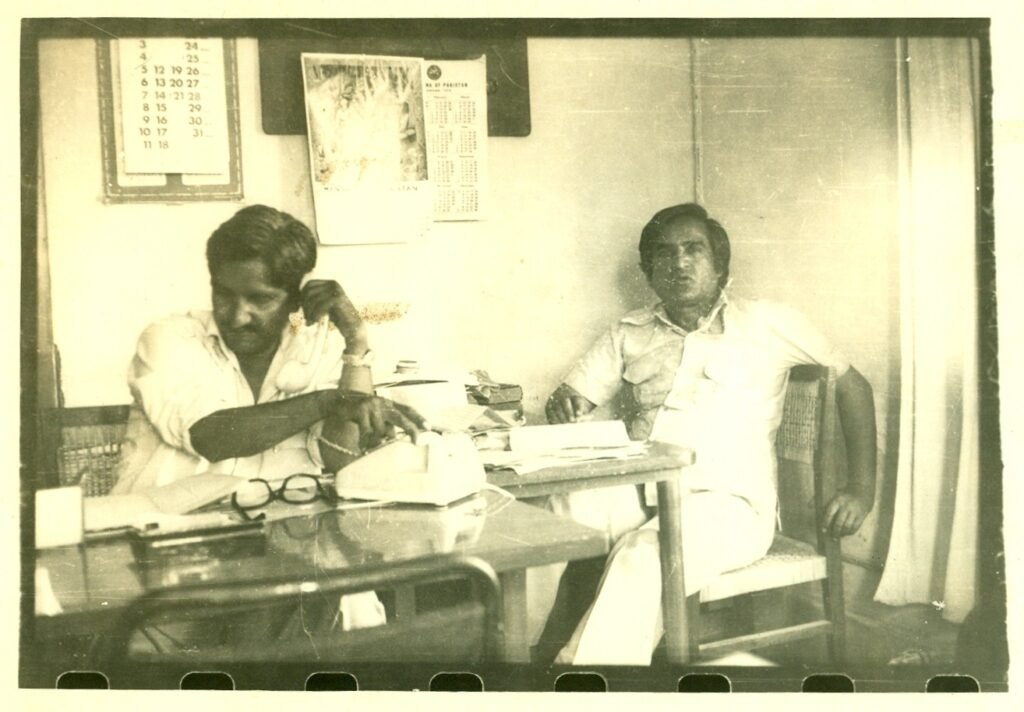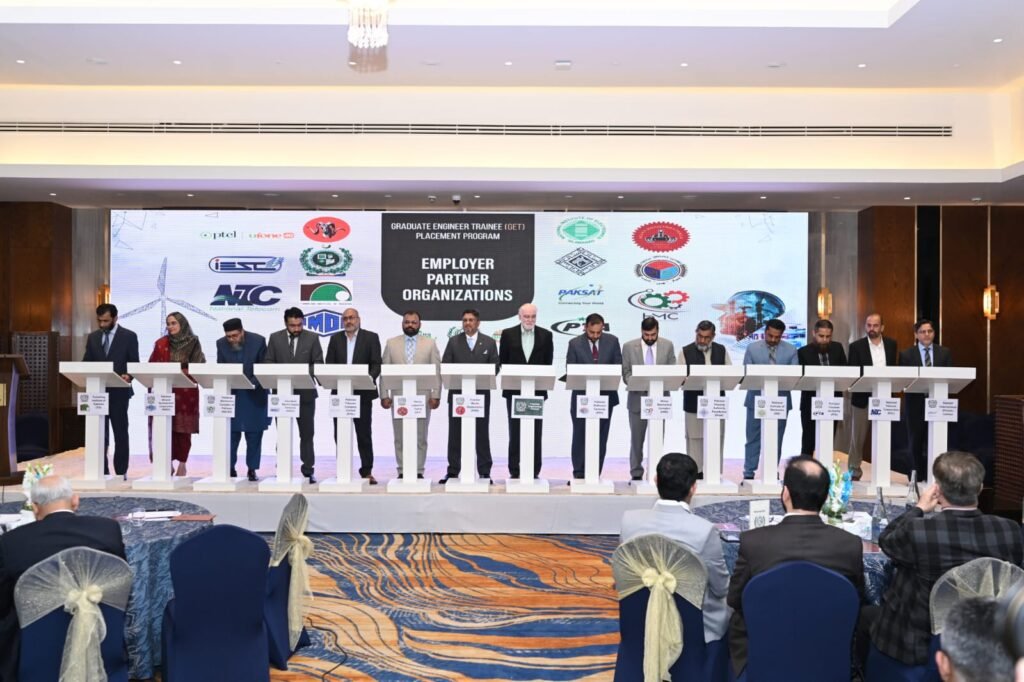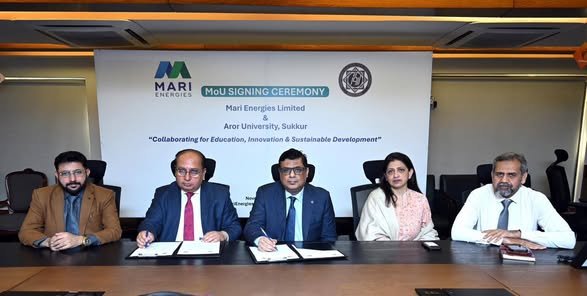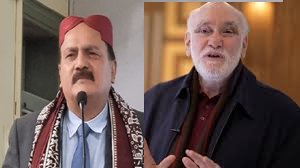
By Manzoor Shaikh
It must have been sometime in the late 1980s. On Chundrigar Road, in an office on Dr. Billimoria Street, two senior men were deeply engrossed in a heated argument. The office peon, after asking me to wait, said politely, “Please have a seat for a while.”
From where I sat, I could clearly see both of them through the glass partition — and their voices carried well enough for me to hear every word. Waiting, though usually difficult, seemed easier that day because their discussion was about something that fascinated me. They were passionately debating politics — specifically, the rights of ordinary citizens and the underprivileged — the sort of themes usually raised by nationalists.
As a student of Dawood College of Engineering and Technology (DCET, Karachi) — now a university — I found their conversation both familiar and electrifying. Back then, university campuses were hubs of political activity, and such debates struck right at the heart of my own curiosity.
The interesting thing, however, was that the discussion was taking place not in a political party office, but in the office of an engineering magazine — and the two men engaged in that fiery exchange were Mr. Najamul Hasan, the Managing Editor, and Mr. Riazul Hasan, the Editor of Engineering Review.
At that time, I had no idea that both men were ethnically Punjabi. But even more surprising was hearing them advocate for equal development across all regions of Pakistan, transcending provincial identities — something rarely heard back then.
I had originally come there for another purpose altogether. But before I even met them, I realized that my visit had already been worthwhile.
A short while later, I was called in. I went in and sat before Mr. Najamul Hasan. “Sir, I’m a student at DCET,” I began, almost breathlessly. “I’ve heard that you offer scholarships to bright students — that’s why I’ve come.” “Oh, yes,” he replied kindly. “We do try to help where we can. Do you have your marksheet with you?” After I showed my marksheet and went through a brief personal interview, Engineering Review promised me a monthly stipend of Rs. 300.
At that moment, I had no idea that the two men I had just met — and the organization they led — would leave such a lasting impression on my life. Their values, their seriousness of purpose, and their quiet belief in nurturing young minds would remain etched in my memory forever.
Their true worth — Najamul Hasan and Riazul Hasan — became clear to me about ten years later, when I began working at Engineering Review as a reporter. While I was working at the Daily Barsat, a senior journalist, Javed Rafiq — who worked with Yousuf Shaheen’s English paper Sindh Tribune — suggested that I start reporting with Engineering Review. The very next morning, after ten years, I walked once again into the Engineering Review office.
I met Editor Riazul Hasan and told him I wanted to work as a reporter. He handed me a piece of paper and a pencil and asked me to file a story about a railway accident near Sangi Railway Station. It was one of the deadliest railway accidents in Pakistan’s history, with enormous loss of life and property. I don’t know how much Riaz Sahib liked my story, but he expressed his willingness to include me in his reporting staff. That’s how my career in engineering journalism began.
Thanks to Riaz Sahib’s editorial skill and Najam Sahib’s strategic planning, we were able to break many important stories — often ahead of the morning newspapers. Becoming a good engineering journalist is one thing, but what impressed me even more was the human face of this small institution as it evolved before my eyes.
I saw honesty and humanism in practice at Engineering Review. Najamul Hasan wrote later, in his autobiography, about his desire for a comfortable life, but I saw him live his convictions every single day. If anyone ever truly earned their reward from the magazine’s earnings, it was Najam and Riaz.
In Pakistan, many institutions run according to the whims of wealthy patrons; the boss’s word is treated as law. Yet these two ran an inclusive, modern institution — without arrogance, without authoritarianism. I have never seen anyone observe and follow details as meticulously as Najamul Hasan. The little skill I have for thinking and writing ideas, I owe entirely to him.
The way he trained the sales and marketing teams was remarkable — almost unmatched. That is why many who once worked in Engineering Review’s editorial and marketing sections later went on to hold key positions in other organizations.
Many left to launch their own magazines and publications. For instance, Aftab Iraqi worked about fifteen years and later launched Engineering & Industrial Review (EIR). Zeeshan Haider, a sales and marketing executive from Lahore, after twenty years, started Engineering Post. Ch. Gulzar, after twelve years here, launched Constructor. Another colleague from Lahore began Industrial Affairs.
This spirit of independence and enterprise — nurtured by Engineering Review — was a legacy of Najamul Hasan’s mentorship.
Yes, some of those publications survived while others didn’t, but none could rival the foundational strength of Engineering Review. Its core remained unchanged — authentic news that drives business and shapes the engineering landscape.
And when the time came, the legacy of Najamul Hasan fell into worthy hands — those of his son, Syed Muhammad Salahuddin. Taking over his father’s seat, Salahuddin soon faced the same kind of storms his father had weathered decades earlier. Pakistan’s fragile economy and, later, the COVID-19 pandemic seemed to echo those early years of struggle for Engineering Review. Yet, like his father, he never lost sight of the path laid before him — resilience, integrity, and an unshakable faith in hard work. He remembered what Najam Sahib had done, how he had endured, and what principles had guided him through hardship. Through these testing times, Salahuddin carried forward that same torch, ensuring that Engineering Review continued to stand tall — not just as a magazine, but as a living institution of credibility, courage, and continuity.
It’s not necessary to mention that because I was Riaz Sahib’s reporter, I later broke many stories while working for The Frontier Post in Peshawar and Lahore. I respected him so deeply that when I was later offered the position of Editor, I accepted only on one condition — as long as Riaz Sahib was alive, he would remain the Editor, and I would continue doing the editorial work. Due to health issues, he gradually began spending more time at home.
Had these two giants come from wealthy families, today’s celebrated media figures would pale in comparison to them. Their influence was such that many people — from youth to old age — have remained part of Engineering Review’s journey.
Names like Waheed Ahmed, Raza Ur Rehman, Mansoor Hussain, Munawar Ali, Manzoor Shaikh, Farrukh Adil, and Iftikhar Chaudhry still appear in the old issues of Engineering Review — somewhere, in some byline, you will find them. (The author is the Editor of Engineering Review.)
Lyari River: Karachi’s Forgotten Lifeline
PAKISTAN By Raja Ramesh Karachi, the city of lights and relentless ambition, hides a secret…
PEC Signs MoUs with 14 Organizations for Graduate Engineer Trainee Program
PAKISTAN In a major step toward strengthening the professional competence of Pakistan’s young engineers, the…
Aror University, MariEnergies Sign MoU to Promote Education, Innovation and Sustainable Development
PAKISTAN Aror University of Art, Architecture, Design & Heritage, Sukkur has signed a Memorandum of…
Call for Reforms: PEC GB Member Seeks Representation, Allowances for Young Engineers
PAKISTAN “Representation of young engineers, Technical Allowance, and a formal Service Structure for Engineers should…
HUBCO Subsidiary’s Joint Venture Wins Provisional Rights to Four Onshore Exploration Blocks
PAKISTAN The Hub Power Company Limited (HUBCO) has announced that Prime International Oil and Gas…
Fatima Petroleum Subsidiary Wins Provisional Award for Two Offshore Exploration Blocks
PAKISTAN Fatima Petroleum Company Limited (FPCL), a wholly owned subsidiary of Fatima Group, has been…






